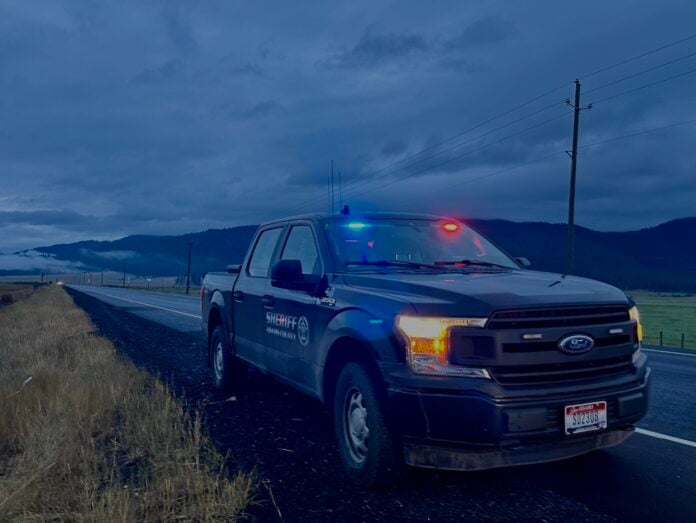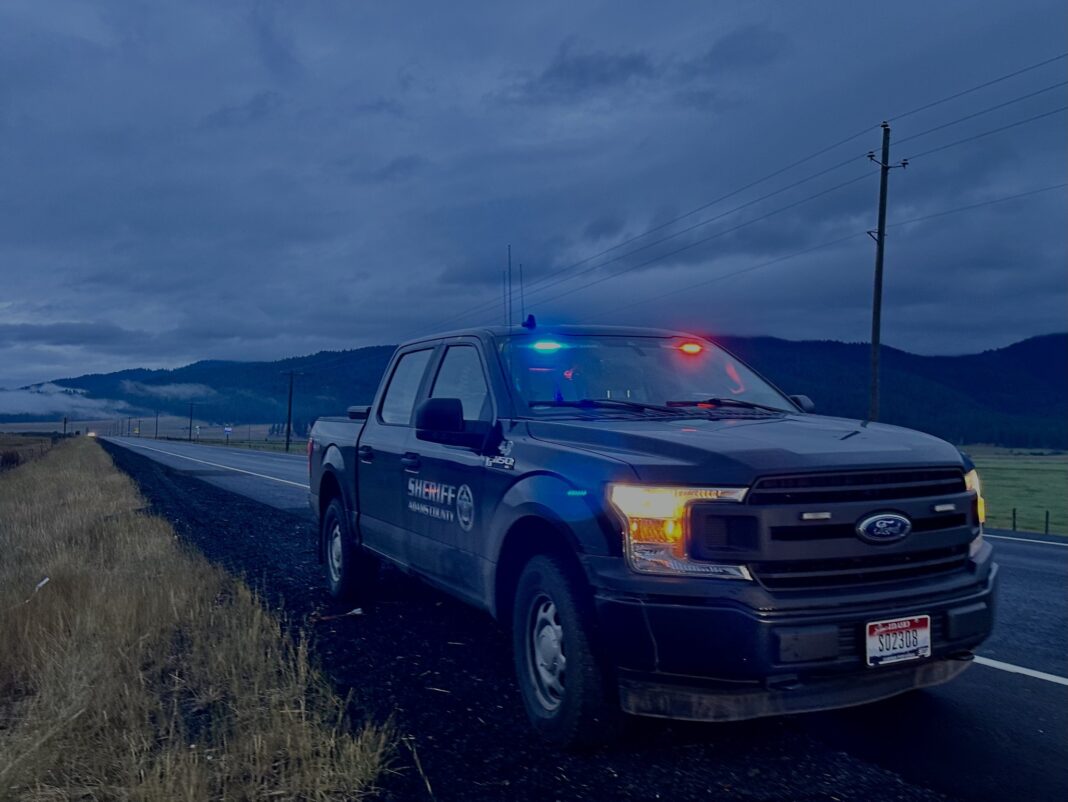It could soon be a crime to not identify yourself when questioned by police officers in Adams County.
On Monday, the Board of County Commissioners discussed adopting a “Stop and Identify” law that would apply to anyone being detained by police for questioning in connection with a crime investigation. If a detainee refuses to verbally identify themselves, they could then be arrested and charged with a misdemeanor, under the law.
The law was proposed by Adams County Prosecuting Attorney Peter Donovan and Sheriff Ryan Zollman, who framed it as a tool for making investigations smoother and increasing the likelihood of successful convictions.
State law does not allow officers to make arrests for misdemeanors without a warrant, unless the officer personally witnessed the crime. That can often make it difficult to investigate uncooperative suspects, particularly in cases involving domestic violence, Zollman said.
“An innocent person, a law-abiding citizen, I’ve never had a problem (getting them to identify themselves),” Zollman said. “Now with this ordinance, he’s committed a crime in my presence. So therefore, I can arrest him for that crime to continue my investigation.”
If adopted, the law would apply to all of Adams County, including the cities of Council and New Meadows, as well as Brundage Mountain Resort. Currently, state law only requires motor vehicle drivers to identify themselves to police.
Government overreach or smart policing?
No vote was taken on the proposed law on Monday by the commissioners, who plan to revisit the topic in August. However, the commissioners appeared lukewarm on the proposal at best.
“So, you’re guilty before proven innocent,” Commissioner Viki Purdy said. “I just think this is way over-reaching. There is a balance of power between people and officers and this isn’t it.”
Donovan, however, argued the law would help the county secure more convictions by shutting down a common argument used to suppress key evidence in court.
“Defense attorneys will subsequently try to argue that somebody was arrested when they weren’t supposed to be, having not committed a misdemeanor in the presence (of an officer),” he said. “For that reason, everything that happened after that initial interaction needs to be suppressed. You can’t use it. That leads to a lot of crimes not successfully being prosecuted, unfortunately.”
‘Stop and Identify’ in Nampa
Donovan just started earlier this year as Adams County’s prosecutor, but said he has seen the difference Stop and Identify can make in Nampa, which adopted a similar law in 2021.
“I’ve prosecuted cases before where it was charged in Nampa, and I’ve seen other cases where it was it was helpful from a procedural standpoint,” he said.
Without donors like you, this story would not exist.
Make a donation of any size here
The Nampa Police Department has filed 41 misdemeanor charges for failure to comply with Stop and Identify, 26 of which were tied to cases involving other crimes, Lt. Brian Jones told Valley Lookout.
“It has been very helpful,” Jones said. “Prior to this code, people were only required to identify themselves if they were a driver in a vehicle or drinking/possessing alcohol.”
Of the 41 charges, 10 have resulted in guilty pleas and three are pending resolution. Most often, the charge is either dismissed outright or in conjunction with a plea deal on other charges.
“It appears the most common punishment imposed by a judge is a fine,” Jones said. “It doesn’t look like jail time is imposed solely for this offense.

Sheriff: transient population a factor
Adams County is among Idaho’s least populated counties, but Zollman warned that uncooperative suspects are becoming increasingly common. Often, he said, the suspects do not even live in the county.
“We can’t look at it from the perspective of ‘this is nice little quiet Adams County,’” he said. “80+ percent of our contacts and our encounters are not people from this community.”
Commissioners Joe Iveson and Daren Ward said they understood the rationale for the law, but remained skeptical of it as written.
“If I’m a citizen and I’m looking at this, I’m thinking ‘no way,’” Iveson said. “I think maybe we should mull it over some more and I guess do a public hearing and air it out.”
Ward initially felt the law should be addressed at the state level, but said he would like to see the ordinance language updated and brought back to the county for further consideration.
Idaho v. Clarke implications
A 2019 Idaho Supreme Court ruling is the driver behind the Stop and Identify law proposed in Adams County.
Peter O’Donald Clarke was arrested in Hayden for battery in 2016 after a woman reported that he made unwanted sexual advances on her. Arresting officers determined they had probable cause for the battery charge, then found marijuana and methamphetamine on Clarke, prompting felony drug charges.
The battery charges were later dropped due to a lack of evidence, but the state still sought to convict Clarke on the drug charges. Clarke filed to suppress the evidence, saying it was gathered after an unlawful arrest.
A district court judge disagreed, citing an Idaho law that allows officers to make an arrest with only probable cause for misdemeanors tied to domestic violence cases.
Clarke then appealed the case to the Supreme Court, which found that the state law was overridden by a constitutional protection from unreasonable searches and seizures.
“We are fully mindful of the significance of this conclusion,” Justice Joel Horton wrote in a unanimous decision. “Domestic violence is a serious crime that causes substantial damage to victims and children, as well as to the community.”
“Nevertheless, the extremely powerful policy considerations which support upholding (state law) must yield to the requirements of the Idaho Constitution,” Horton wrote.
Clarke ruling has ‘handcuffed’ police
The ruling unraveled decades of precedent and forced police around the state to develop new strategies for domestic violence cases.
Ward, who retired from the Canyon County Sheriff’s Office in 2020, called the ruling “absolutely ridiculous” and said, “it changed policing everywhere.”
Zollman agreed and said he expects it to be addressed by the Idaho Legislature in the next few years, regardless of whether the county moves to adopt a Stop and Identify law.
“Something like this is coming at the state level because Clarke has handcuffed us and the way we do our job in so many ways,” he said. “Unfortunately it’s probably going to be after some poor victim loses their life because we were not able to do our job.”
(Editor’s Note: This story was updated on July 30 to include comments from the Nampa Police Department)






